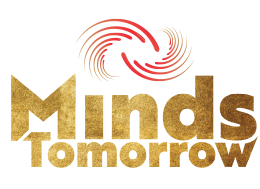What Every Coach Should Know About Using Hypnosis Ethically & Effectively

Have you ever watched a client struggle with the same pattern for months, despite their sincere desire to change? They understand what needs to shift. They’ve set clear intentions. They’ve created accountability systems. And yet, something invisible keeps pulling them back to old behaviours and limiting beliefs.
I remember working with Thomas, a brilliant business coach who could transform his clients’ strategies but struggled with a persistent fear of visibility in his own business. “I know exactly what I should be doing,” he confessed during our first session. “I teach this stuff! But when it comes to putting myself out there, it’s like hitting an invisible wall.”
After just three hypnosis sessions addressing the root causes of his fear—a childhood memory of being ridiculed during a presentation—Thomas finally experienced the breakthrough that years of mindset work couldn’t touch. Within two months, he had launched his podcast, started speaking at events, and doubled his client base. “For the first time,” he shared, “my outer actions match my inner knowing.”
This is the transformative power of hypnosis when used ethically and skillfully within a coaching context.
Hypnosis has gained significant popularity in coaching, wellness, and transformational spaces—and for good reason. When applied properly, it’s one of the most powerful tools for helping clients access deep, lasting change at the unconscious level where most limitations actually reside.
But with that power comes profound responsibility.
Whether you’re a life coach, mindset mentor, or energy healer, if you’re considering integrating hypnosis into your practice, there are non-negotiable principles you need to understand and honor. Let’s explore the ethical foundations and best practices for using hypnosis safely, consciously, and with true effectiveness.
🧠 What Is Hypnosis in the Coaching Context?
Hypnosis is a naturally occurring focused state of awareness that allows access to the unconscious mind—the part of us that stores beliefs, habits, emotions, and identity patterns that drive approximately 95% of our behaviours and decisions.
Feel into this truth: Have you ever driven home and suddenly realised you don’t remember parts of the journey? Or been so absorbed in a book or movie that the outside world faded away? These are natural trance states that we all experience regularly. Hypnosis simply utilises this natural capacity in an intentional, directed way.
In coaching contexts, hypnosis is used to:
Uncover and reframe limiting beliefs that keep clients stuck in patterns of self-sabotage or underperformance. Imagine helping a client finally release the unconscious belief “success isn’t safe” that has been invisibly holding them back for years.
Resolve internal conflicts that create ambivalence and procrastination. Feel the difference when a client moves from “part of me wants this, but part of me is terrified” to wholehearted alignment with their goals.
Reinforce new behaviours or identity shifts at the deepest level, creating sustainable change. Picture a client who no longer has to force themselves to take aligned action—it simply becomes their new normal.
Accelerate transformation beyond surface-level awareness, helping clients make shifts in weeks that might otherwise take years. Experience the satisfaction of facilitating breakthroughs that talk-based coaching alone simply cannot achieve.
But—and this is absolutely critical—hypnosis is not therapy, and unless you’re clinically licensed, it should never be used as such. Understanding this boundary is the first cornerstone of ethical practice.
🔒 The Ethics of Hypnosis: Boundaries That Build Trust
1. Know Your Scope
Ethical use of hypnosis means staying firmly within your professional scope and recognising when a client needs different support. As a coach using hypnosis, you should not:
Treat diagnosed mental health conditions or attempt to address complex trauma. These require specialised clinical training beyond hypnosis certification. Your client’s wellbeing must always come before your desire to help.
Use regression for trauma resolution unless you have specific mental health credentials. While age regression can be powerful, it can also unlock emotional material that requires clinical expertise to manage safely.
Make exaggerated claims such as “this will heal your anxiety” or “one session will change your life forever.” Ethical practitioners set realistic expectations and recognise that hypnosis is a tool, not a magical solution.
Instead, stick to what hypnosis does best in the coaching space: mindset reprogramming, goal alignment, emotional mastery, and identity expansion. When used appropriately within these parameters, hypnosis can create profound, life-changing results without crossing ethical lines.
2. Client Consent Is Crucial
Hypnosis is both powerful and deeply personal—a sacred entrance into someone’s inner landscape. Ethical practitioners recognise this by:
Explaining what hypnosis is—and what it isn’t before beginning. Many clients have misconceptions from stage hypnosis or media portrayals. Take time to educate them on the collaborative, conscious nature of coaching hypnosis.
Asking for explicit informed consent and respecting any hesitation. A client should never feel pressured into hypnosis work, and should understand they remain in control throughout the process.
Respecting emotional safety and boundaries by creating pre-session agreements about topics or approaches that feel uncomfortable. This builds the trust essential for effective hypnotic work.
Debriefing after every session to integrate insights and ensure the client feels complete and grounded. This closure is as important as the hypnosis itself.
When in doubt: clarify, ask, and over-communicate. The foundation of ethical hypnosis is profound respect for the client’s autonomy and experience.
3. Use Scripts Responsibly
In your journey as a hypnosis practitioner, you’ll discover hundreds of generic hypnosis scripts online—but using them without proper training or thoughtful adaptation carries significant risks.
A truly professional hypnosis coach:
Tailors suggestions to each client’s values, language, and specific goals rather than using one-size-fits-all approaches. The words that resonate for one person may feel jarring or inauthentic to another.
Avoids suggestive phrasing that implies judgment or imposes the coach’s values. For example, “You now realise that your fear is irrational” presumes the client’s experience rather than facilitating their own insight.
Understands how to safely guide a client in and out of trance, recognising signs of readiness and ensuring complete reorientation before concluding the session.
When done correctly, hypnosis becomes a collaborative, empowering experience that honours the client’s wisdom—not a manipulation or an attempt to “fix” someone from the outside.
🧘♀️ The Role of Hypnosis in Conscious Coaching
Hypnosis is not a party trick. It’s not something to “drop in at the end of a session” without proper context or training. It’s a profound modality that deserves dedicated study, present-moment awareness, and deep reverence for its potential.
Here’s why it works so beautifully within a conscious coaching framework:
Clients are often intellectually aware of what they want but blocked by unconscious programs they can’t access through logical thinking alone. Hypnosis creates a bridge between conscious desires and unconscious patterns.
Hypnosis bypasses the inner critic and rational mind to reach the deeper emotional truth and core beliefs driving behaviour. This is particularly valuable for clients who are “in their heads” and struggle with overthinking.
When paired with coaching, the results stick—because the mind, body, and nervous system are all aligned in the change process. Cognitive understanding combines with emotional release and somatic experience to create integrated transformation.
Imagine the difference between telling a client, “You need to believe in yourself more,” versus guiding them through a hypnotic experience where they actually feel their confidence, embody their value, and release the emotional charge of past failures. The latter creates change at a cellular level—not just an intellectual one.
🛠️ Skills Every Ethical Hypnosis Coach Should Master
In Gina Palmer’s comprehensive 3-Day Online Hypnosis Certification, practitioners develop essential skills that go far beyond basic script reading:
Inducing trance safely and effectively for different client types, recognising that each person’s journey into hypnotic states is unique. You’ll learn multiple induction techniques and how to determine which is most appropriate for each situation.
Asking powerful pre-hypnosis questions that reveal the root causes and patterns needing attention. This assessment phase is crucial for creating targeted, effective hypnotic work.
Delivering clean, empowering suggestions that respect the client’s autonomy while facilitating meaningful change. The language of hypnosis is an art form requiring precision and awareness.
Guiding clients toward unconscious resolution of conflicts and limitations, without imposing your own agenda or timeline. The most powerful shifts come from within the client, not from the coach.
Working within clear ethical frameworks that prioritise client wellbeing and appropriate boundaries. Ethics aren’t just guidelines—they’re the foundation of powerful, trust-based practice.
Debriefing, re-anchoring, and integrating the hypnotic experience into ongoing coaching plans. The post-hypnosis integration is where lasting change is solidified.
These skills require more than theoretical knowledge—they demand practice, feedback, and embodied understanding. Reading about hypnosis cannot replace experiential learning under qualified guidance.
🧠 Want to go beyond scripts and master real hypnosis skills?
Join Gina Palmer’s accredited Hypnosis Certification and learn to facilitate deep client transformation with confidence, clarity, and ethical presence.🎓 View training details & apply here — next cohort starts June 27–29, 2025 (Online).
✅ Real-World Applications: How Coaches Use Hypnosis Ethically
Ethically trained hypnosis coaches support clients with a wide range of transformative goals:
Releasing fear of visibility that keeps heart-centred entrepreneurs from sharing their gifts. Imagine helping a brilliant healer finally feel safe being seen, knowing their message will reach those who need it most.
Shifting self-worth patterns that drive undercharging, overdelivering, and burnout. Feel the satisfaction of witnessing a client confidently charge what they’re worth—and attract clients who value them.
Letting go of inherited money blocks that create income ceilings or feast-famine cycles. Picture a coach finally breaking through to consistent abundance after years of financial struggle.
Anchoring in new leadership identities as clients step into bigger roles and opportunities. Experience the joy of watching someone embody their authority with ease rather than imposter syndrome.
Cultivating calm under pressure for clients facing high-stakes situations or recovery from burnout. The relief on a client’s face when they realise they can access peace regardless of external circumstances is profoundly rewarding.
Enhancing focus and follow-through for clients who struggle with distraction or project completion. Witness the transformation as someone moves from scattered to powerfully directed energy.
Each of these applications creates life-changing value while staying firmly within coaching boundaries—addressing mindset, emotional mastery, and self-leadership rather than clinical issues.
✨ Final Thoughts: Power + Presence + Responsibility
When used ethically, hypnosis becomes a sacred bridge between what your client consciously knows they want—and what they’re finally ready to allow at the deepest levels of their being.
It’s not just another tool to add to your coaching toolkit. It’s a responsibility. A privilege. A doorway to the kind of profound transformation that creates ripples through your clients’ lives and businesses.
And with proper training, ethical foundations, and continuous development of your craft, it can become one of the most respected, referral-generating modalities in your practice.
Can you feel the difference you could make by developing this skill? Can you imagine the satisfaction of facilitating breakthroughs that talk-based coaching alone might never reach? Can you picture the growth of your practice as clients experience results that seemed impossible before working with you?
🧠 Your Invitation to Ethical Hypnosis Mastery
If you feel called to this powerful work—to becoming the kind of coach who facilitates not just incremental progress but profound transformation—I invite you to explore Gina Palmer’s accredited hypnosis certification.
Learn not just the techniques but the ethical framework, psychological understanding, and embodied presence that make hypnosis truly transformative.
This isn’t just another skill. It’s a calling.
Become the coach who guides lasting breakthroughs—not just surface changes.💫 Apply now for Gina’s next Hypnosis Certification and step into your next level of mastery.
Or join us in person in Byron Bay from 5-7 September
Because your clients deserve more than surface-level change. And you deserve to facilitate the kind of transformation that reminds you why you became a coach in the first place.



